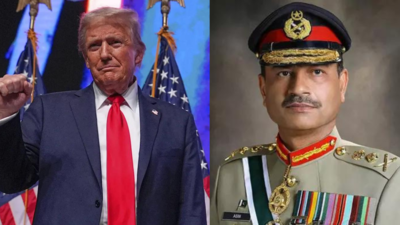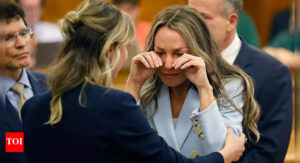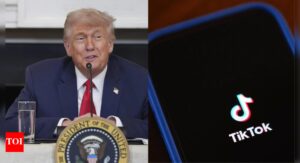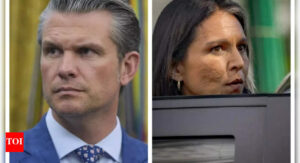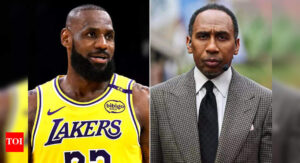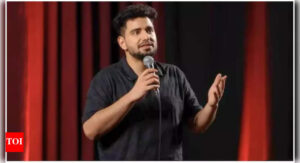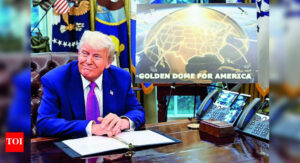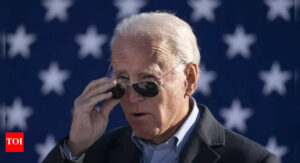Trump-Munir lunch: Iran, trade or counterterrorism – What’s driving US President’s sudden warmth toward Pakistan
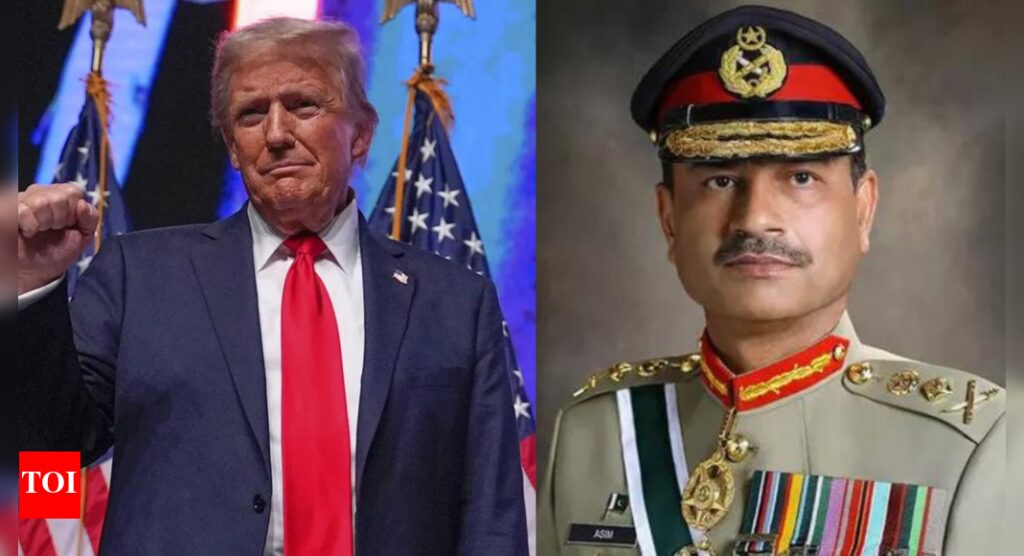
Donald Trump’s White House lunch with Asim Munir on Wednesday represented a significant diplomatic departure, being the first instance of a US President hosting a Pakistani military leader who isn’t the head of state.Pakistan‘s relationship with the US is experiencing renewed engagement, marked by enhanced counterterrorism cooperation and potential economic partnerships. Recent developments include Pakistan’s capture of the suspected Abbey Gate bomber and discussions about trade deals, rare earth minerals, and cryptocurrency investments, signaling a shift from the previously strained relations under the Biden administration. This engagement stands in stark contrast to Trump’s previous stance when he had accused Pakistan of deception and harbouring terrorists and former President Joe Biden’s characterisation of Pakistan as highly dangerous. So what is the reason behind this change in heart?‘Pakistanis know Iran very well’Israel has been conducting strikes on Iranian cities since June 13, targeting generals, missile bases, nuclear facilities, and scientists, resulting in over 200 deaths. Iran’s retaliatory missile and drone attacks on Israel have killed approximately 20 people in the past six days.The Israeli government under Benjamin Netanyahu has been seeking US support in their offensive against Iran, which shares a 900-kilometre border with Pakistan.Speaking in the Oval Office after lunch with Munir, Trump said: “The Pakistanis know Iran very well, better than most,” while noting they are “not happy.”Capture of Abbey Gate bomberPakistan has maintained a long-standing relationship with the US since its independence in 1947, initially aligning with Washington during the Cold War. The partnership strengthened during the Soviet invasion of Afghanistan, with Pakistan supporting US objectives and collaborating to aid the mujahideen forces, according to Aljazeera.The relationship faced challenges after 9/11, particularly when Osama bin Laden was discovered in Abbottabad near Pakistan’s military headquarters in 2011. Since the Taliban’s return to power in 2021, Pakistan has increasingly looked to China for support.Three months ago, during his first address to a joint session of Congress on March 4, newly re-elected Trump revealed that Pakistan had apprehended the alleged perpetrator of the deadly Abbey Gate bombing at Kabul airport from August 2021. The bombing occurred during the chaotic evacuation of thousands of Afghans following the Taliban’s takeover of Afghanistan. In his address, Trump specifically acknowledged Pakistan’s role in the arrest. “I want to thank especially the government of Pakistan for helping arrest this monster,” Trump said during his congressional address.General Michael E Kurilla, chief of US central Command, praised Pakistan’s recent counterterrorism efforts during his testimony before the House Armed Services Committee. “They are in an active counterterrorism fight right now, and they have been a phenomenal partner in the counterterrorism world,” Kurilla stated.Kurilla highlighted the direct coordination with Pakistan’s army chief in recent operations. “Field Marshal Asim Munir called me to tell me they had captured one of the Daesh-K individuals,” he said.Rare earth mineral resources tradePakistan is now offering new economic incentives to strengthen ties with the US. According to Weinbaum, these include “more goodies, such as a trade deal with no tariffs, offering rare earth minerals, and crypto.”The country has begun promoting its rare earth mineral resources to foreign investors, including the US and Saudi Arabia. These minerals are essential for defense, robotics, and electronics industries.Pakistan has established a crypto council and initiated discussions with US officials to attract investment and partnerships in the cryptocurrency sector.Transactional relationshipPakistan’s relationship with the United States has historically been transactional, particularly in security matters. While US aid and investment supported Pakistan’s infrastructure and military development when aligned with US strategic goals, the relationship has been plagued by mutual distrust, with accusations of double-dealing from the US and Pakistan claiming its sacrifices go unrecognized.The US has provided support to Pakistan when needed and withdrawn when its objectives were met. This pattern has characterized their diplomatic ties over the years.“Unless this relationship is institutionalised, beyond the security lens with which it is viewed, it’s another tactical romance. And like past dalliances, it could fade once strategic goals are met or regimes change,” said Rumi.“Much depends on whether it leans toward China or the US. That decision is also tied to the evolving Israel-Palestine conflict and the role of Iran,” said Ansar, noting Pakistan’s position at a crucial strategic crossroads amid global power shifts.Weinbaum offered a more cautious assessment: “If Pakistan does play some role in the Iran crisis, they could have more substantial meaning to these ties. But it needs to be prepared that there is nothing settled with this administration. It can change on a dime, at any hour.”Continuance of military dominance in PakistanThe military institution has directly ruled Pakistan for over three decades, with the current elected government widely considered subordinate to military leadership under Munir.The military’s prominent role follows historical patterns in Pakistan-US relations. Previous military rulers including Field Marshal Ayub Khan in the 1960s, General Muhammad Zia-ul-Haq in the 1980s, and General Pervez Musharraf in the 2000s maintained strong ties with the United States and received White House invitations after becoming heads of state.Munir is only the second Pakistani to achieve the field marshal rank after Khan, reinforcing the military’s central role despite civilian government presence.“This meeting validates the enduring military-to-military track in US-Pakistan ties, but it also bypasses the civilian setup, which should worry anyone rooting for democratic consolidation. If this is the ‘reset,’ it’s one where khaki once again trumps ballot,” CUNY expert Rumi told Aljazeera.The Trump-Munir meeting exemplifies the continuing prominence of military leadership in Pakistan’s international relations, despite having an elected government.
